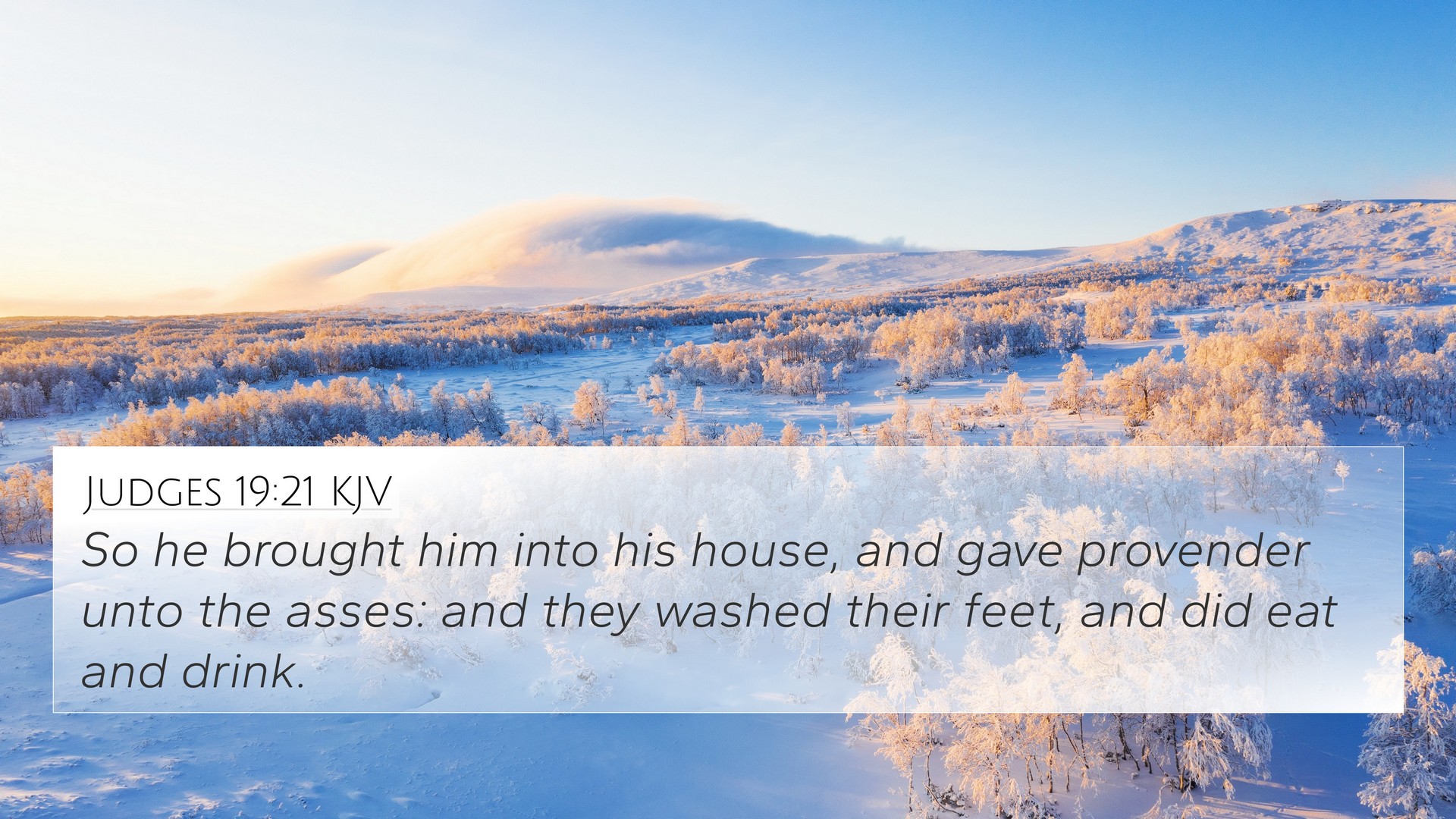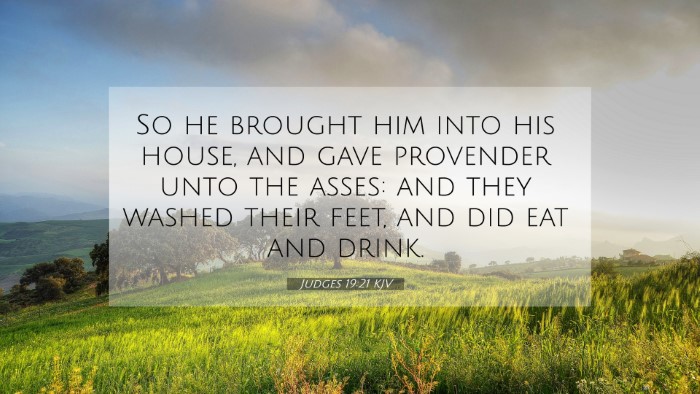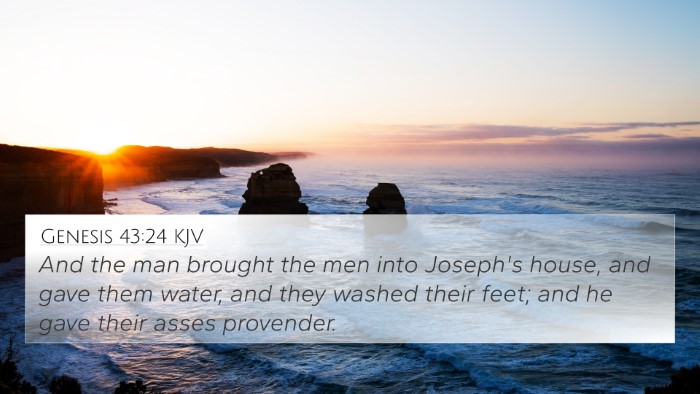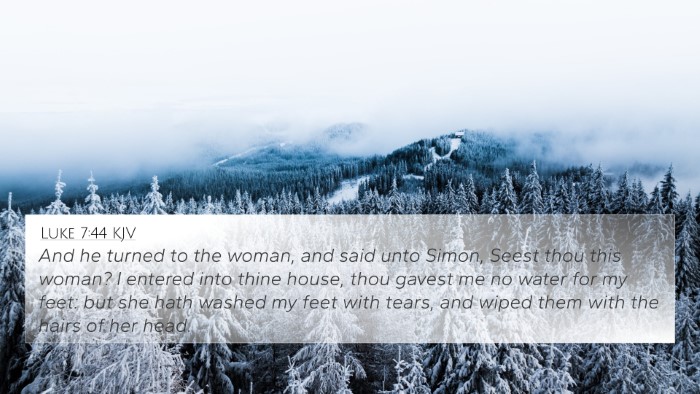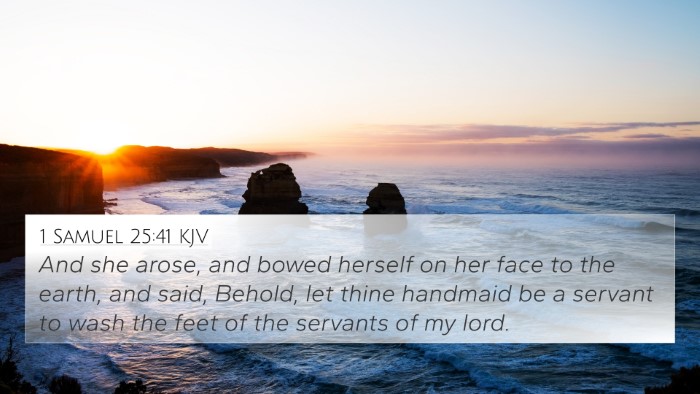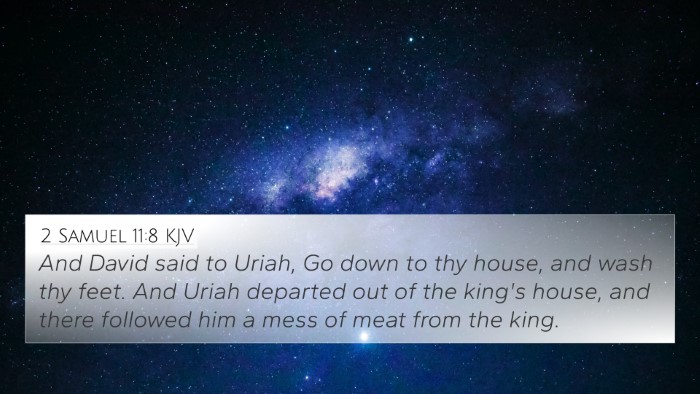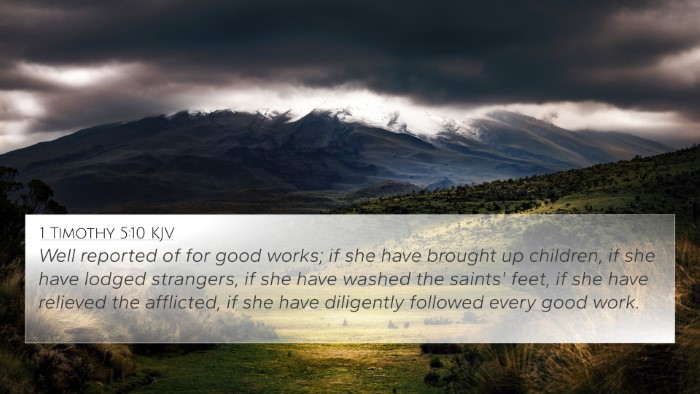Understanding Judges 19:21
Judges 19:21 states: "So he brought him into his house and gave the donkeys feed. And they washed their feet and ate and drank." This passage is a pivotal moment within a larger narrative that reflects themes of hospitality, community, and moral decline in Israel during the period of the judges.
Verse Context
The book of Judges illustrates the chaotic and morally ambiguous period in Israel's history, following the conquest of Canaan and prior to the establishment of a monarchy. In this particular chapter, we encounter a Levite and his concubine who are in distress. This verse highlights an interaction that is crucial to the unfolding events, emphasizing the role of hospitality in ancient Near Eastern culture.
Thematic Insights from Commentaries
-
Matthew Henry's Commentary:
Henry reflects on the significance of hospitality in the ancient times, where offering shelter and food was paramount. He interprets the actions of the man who receives the Levite as a demonstration of social responsibility and kindness, contrasting with the tumultuous atmosphere that permeates the surrounding narrative.
-
Albert Barnes' Commentary:
Barnes notes that the act of providing a meal and care for the weary travelers represents a vital social norm, suggesting that despite the prevailing moral decay, there are still individuals who uphold righteous values. This moment serves as a brief respite before the ensuing chaos, foreshadowing the dire consequences of the Levite’s journey.
-
Adam Clarke's Commentary:
Clarke draws attention to the underlying message of how hospitality can serve as a protective mechanism in times of danger. He emphasizes that the act of washing feet and providing food is not merely a gesture of kindness but also a symbol of purification and refreshment that is culturally significant.
Historical Context
This passage takes place in a time when Israel lacked a centralized government, leading to tribal conflict and social instability. The ancient Near Eastern culture highly valued hospitality; a guest who found refuge was under the protection of the host. This aspect of the narrative underscores the importance of these cultural traditions, particularly in a setting where safety was increasingly uncertain.
Bible Verse Connections
Various Bible verses resonate with the themes presented in Judges 19:21, illustrating the interconnectedness of Biblical scripture. Below are notable cross-references that relate to hospitality, moral conduct, and social responsibility:
- Genesis 18:1-5 - Abraham's hospitality to three visitors.
- Leviticus 19:34 - Instructions to love the stranger and provide for them.
- Matthew 25:35-36 - Jesus speaks of receiving strangers and providing for them as if serving Him.
- Hebrews 13:2 - Exhortation not to forget hospitality, as some have entertained angels unknowingly.
- Luke 10:7 - Jesus instructs his disciples to stay with those who welcome them.
- Proverbs 28:27 - A promise that whoever gives to the poor will lack nothing.
- 1 Peter 4:9 - An encouragement to show hospitality without grumbling.
- Romans 12:13 - Instruction to practice hospitality.
- 2 Kings 4:8 - The Shunammite woman provides hospitality to Elisha.
- Matthew 18:5 - Receiving a child in Jesus’ name is akin to receiving Him.
Conclusion
Judges 19:21 serves as a lens into the cultural practices of hospitality during the biblical era while reflecting broader themes of community support and personal morality. From public domain commentaries, we understand that the reciprocal relationship between host and guest is significant, offering theological insights into how such values endure within scripture.
This verse invites readers to reflect on their own understanding of hospitality and how these age-old principles still resonate today. Through cross-referencing this and related verses, one can discover a rich tapestry of biblical themes that connect the Old and New Testaments, urging the faithful to evaluate their roles within their communities.
